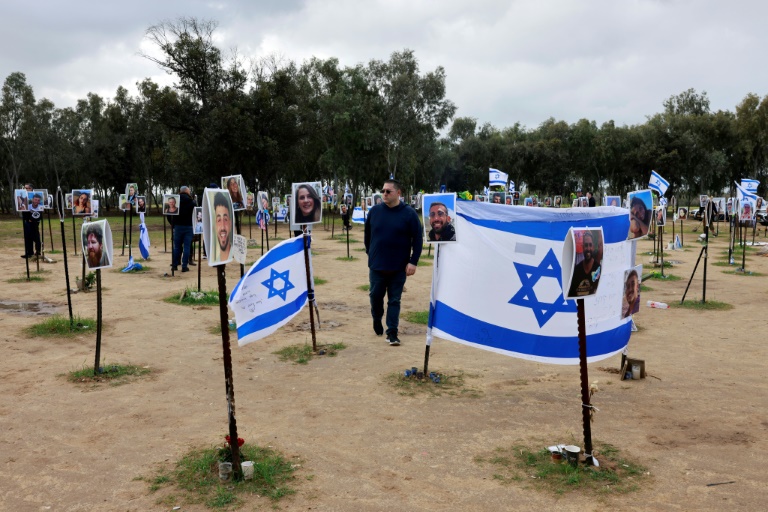
RE'IM, Israel, Feb 28, 2024 (BSS/AFP) - Thousands of visitors in Israel have been flocking weekly to the site of the Supernova music festival, to pay their respects to the 364 people killed there by Hamas in the October 7 attacks.
Visitors disembark from a constant flow of buses and cars on the edge of fields and forests in the south of Israel, just a few kilometres (miles) away from the Gaza Strip.
Nearly five months ago, some 3,000 festival-goers were at this spot preparing to enjoy a two-day techno party under the desert sky.
Visitors arriving now in a nearby parking lot are met with a giant mosaic of photos of victims killed in the attack, bearing the slogan: "We will remember you for eternity."
The Supernova festival saw the highest death toll by far when Hamas militants broke through from Gaza in an unprecedented attack, which resulted in the deaths of more than 1,160 people.
Some 250 people -- among them 40 festival-goers -- were taken hostage. A total of 130 remain in Gaza, including 31 presumed dead, according to Israel.
In response to the attack, Israel launched a military campaign that has killed at least 29,954 people in Gaza, mostly women and children, according to the Palestinian territory's health ministry.
In the field at the Supernova site, one tree has been planted for each victim in remembrance, their frail stems supported by stakes.
What was barren ground in October has turned green, dotted with red anemones.
A visiting group of uniformed soldiers -- some just returning after fighting in the Gaza Strip -- sang the Hatikva, the Israeli national anthem.
They were joined by a group of women from Mexico, among them Jacqueline Sefami, a member of a pro-Israel organisation, who said "I can't stop crying".
While they visited the site, explosions were ringing out in the distance in Gaza, where Israel is battling Hamas.
Elazar Goldstein, 42, an army reservist, had just completed a tour of duty in Gaza.
Walking in the field, holding hands with his wife, he said "nothing justifies war more than this".
- 'Connect to this history' -
Other trees have been planted at the site with photos attached of those killed or taken hostage at the festival.
The site is decorated with Israeli flags, candles, wreaths of flowers and other objects symbolising those lost, including several guitars.
The majority of visitors are Israelis, like the group led by Frederic Coscas, a tour guide from Netanya in central Israel, who recounted details of the attack to a group of around 20 people.
He said he was shaken when he saw "the photos of all these young people who were just asking to live".
"It's therapy for me to come here," said Coscas, whose daughter was at the festival and narrowly escaped the attack.
More than 40 sites were attacked by Hamas, including military bases, villages and kibbutzim.
After October 7, official delegations streamed in to pay their respects in the communities.
But their inhabitants, seeking peace and quiet, finally demanded an end to visits.
As well as the Supernova site, delegations also continue to visit the city of Ofakim -- the place furthest into Israel that was attacked, some 25 kilometres (16 miles) from Gaza.
About 40 police and civilians were killed in Ofakim.
A group of girls from a Jerusalem religious seminary listen with tears in their eyes to the story of Shiran, the 37-year-old widow of Roni Abuharon, a policeman killed by Hamas.
"I am proud of him," she said in front of Abuharon's portrait in the spot where he was killed, in an area still riddled with bullet holes.
"I want to tell his story so that we understand that the Jewish people are alive and will win."
Yaffa Moskowitz, education manager at the seminary, said "it's important to show our students what happened here, so they can connect to this history".
At the Supernova site, Goldstein, the reservist, said he is confident about the future.
"I was here on (October) 8, I saw the bodies, and today I see all this green and all the people who come to walk here in complete safety," he said.
"I'm optimistic, but it's a long process."